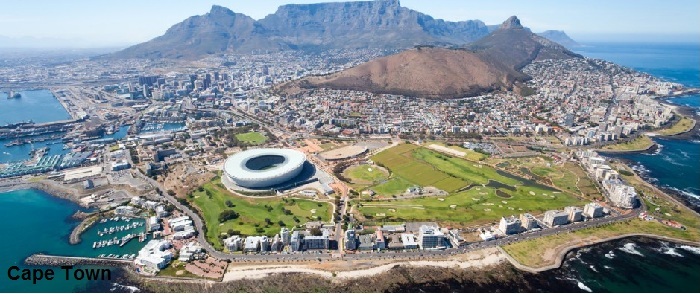Reneva Fourie on “The Challenge of National Unity and Social Cohesion”
The topic was particularly of relevance given the real challenges that states experience trying to balance the demands of globalisation while trying to maintain national unity and social cohesion. Globalisation has heightened the inter-dependence of states and its sub-ordination to supra-national organisations. Contrasting this solidifying globalisation is the responsibility of states to address the needs of citizens.
This responsibility is exacerbated by the increased demands of organised constituencies, including those with separatist tendencies, as people coalesce around commonalities due to among others:
• cultural background
• historical land ownership patterns
• frustrations caused by poor governance and rising poverty
• perceived or real biases regarding the allocation of socio-economic resources; as well as
• the infringement of human rights.
The ability of states to balance these two contradictory tensions became more necessary after the end of the Cold War. Ambassador Barry Gilder said the following in his book ‘Songs and Secrets’ and I quote,
“One effect of the ending of the Cold War and apartheid has been the retreat by peoples around the world and in South Africa into nationalisms, ethnicity and religion.
• With most of the great national liberation struggles of the twentieth century concluded,
• with the trans-national and trans-racial unifying logic of Marxism pushed back by neo-liberal politics and economics,
• with the loss of the ideological cohesion and solidarity of the great struggles of the last century,
individuals and communities have sought identity, belonging and cohesion in ancient, anachronistic bonds.
Muslims have become more Muslim, Jews more Jewish, Christians more Christian, Zulus more Zulu.
Once great nations have seen their national groups break away into new nation-states. …
Perhaps we are witnessing a new post-colonial and post-Cold War version of divide and rule. If peoples retreat into narrow religious, national and ethnic laagers, the chance of them uniting against the dominant ideology and global balance of power is minimised.” Close quote.
The quest for national unity and social cohesion is further threatened by ideological tension around domestic development policy. This is due to:
• capital aggressively asserting ideological hegemony, ruthlessly carving space for its expansion, with a willingness to incite wars to effect regime change, should its tentacles be curtailed
• while organised labour and left-wing formations demand that the needs of the marginalised or impoverished be prioritised; including redressing the centre and periphery, and rural and urban divides.
States are thus compelled to manage the interplay between narrow nationalism and constituency interests within a globally networked, highly unequal, ideologically contested, and patriarchal environment and to govern in a manner that promotes cultural pluralism.
While recognising that states are not necessarily fully autonomous and that, in this era of globalisation,
• public policy choices and domestic stability are not always devoid of external influence,
• nor internal influence of, among others, political parties or big capital;
a strong state with an effective public governance system is a key contributor to managing intra-state conflict. In particular, the structure of the state is important for facilitating a dialectical relationship between the state and society, and how these interrelations shape political cultures and form collective action.
The decentralisation model of a state, as a governance system, is usually considered as part of a political solution to intra-state conflict, whether through constitutional amendments or even the development of a new constitution.
Institutions such as the Commonwealth Local Government Forum advocate that decentralisation assists to manage intra-state conflict in that it allows the state to restructure the centre-periphery, or central-local relations and provides a framework in which to accommodate cultural pluralism. The United Nations and its organs too regard decentralisation as important for managing intra-state conflict. The effectiveness of decentralisation, however, is a subject of dispute.
Editor In Chief
Reem Haddad

